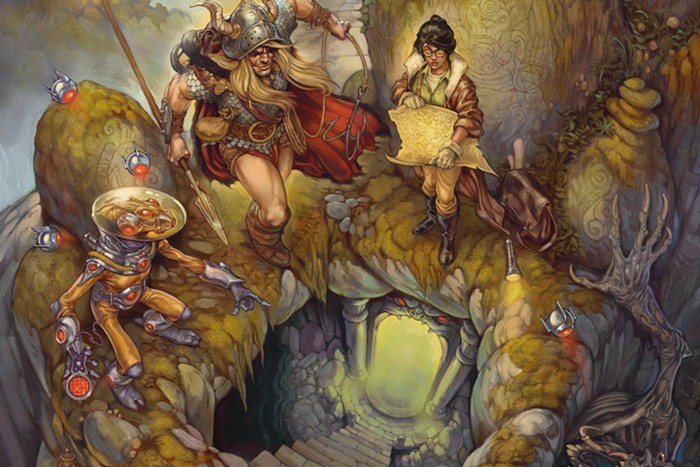
Yesterday I glossed over Sherman Alexie's revelation that he'd employed "racial nepotism" in his search for the best American poetry of 2015. My only regret—where that one blog post is concerned, anyway—is that I robbed myself of the opportunity to congratulate Alexie on that choice.
In response to the controversy over his decision to include "Yi-Fen Chou's" poem in the Best American Poetry anthology even after discovering that Yi-Fen Chou was actually a pen name that a white poet named Michael Derrick Hudson used in order to get published, Alexie admitted that, to him, dumping the poem would have undermined his decision to use racial bias in his selection process. Excluding the poem, he said, "would have cast doubt on every poem I have chosen for BAP. It would have implied that I chose poems based only on identity."
Of course, Alexie didn't choose poems based only on identity. He chose them because he liked them. But he also chose to use his status as a big deal writer to champion writers of color, who have to leap over many more hurdles in the writing world than white writers do, a condition that Alexie knows about from a lifetime of being not-white in the literary world. So, in this case, for the sake of equity in publishing, he wanted to lend his power to those who have less.
Alexie's racial bias in this instance shows a top-down approach to advocating for racial justice within the current publishing system. But there's a bottom-up reason to use "racial nepotism" in editorial processes as well.
Readers are clearly hungry for work by non-white voices. Editors can see this hunger on their social media feeds, in articles, in classrooms, etc. (If they're good editors, then they're also just plain ol' curious about how lots of different people engage with the traditions of poetry. I think of Frank O'Hara buying an issue of New World Writing just "to see what the poets in Ghana are doing these days.") Readers like to buy books and magazines, and so publishers are making an effort to give readers what they want.
Part of what you're hearing, then, when you're hearing these stories about Michael Derrick Hudson, when you're hearing Alexie's explanation of his biased editorial process, when you're hearing people urging others to support the Asian American writers in BAP, is the creaking of a neoliberal machine called the Poetry Business trying to fix itself from the inside. It should surprise no one that the economics of the literary publishing industry reflect the country's economic system, and so they perpetuate the same inequities.
Using affirmative action techniques to achieve some measure of racial equity within this system does risk condescending to writers of color (in that it suggests these writers aren't being published "only" based on the quality of their writing), and, of course, it means that some white people won't take up as much space in journals, magazines, and bookshelves as they have in the past. However. Doing otherwise misses the chance to remind white writers (like me! I'm a white dude!) that they, too, have benefited from racial bias, and so they, too, might be getting published not just because of the quality of their writing.



















